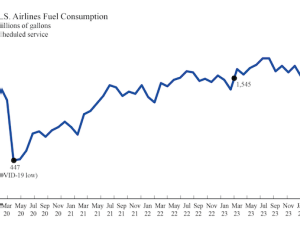The district court ruling issued earlier this year in a bankruptcy case on Puerto Rico Highway and Transportation Authority issued debt is unlikely to have credit implications for U.S. airport revenue bonds issued by public agencies and municipal governments, according to Fitch Ratings. Despite the questions raised regarding the treatment of special revenue obligations, federal laws specific to airport enterprises provide protections against revenue diversion to the general government. Additionally, specific provisions in the bankruptcy code disallow confirming a bankruptcy plan if there was improper use of airport revenues.
The U.S. Congress has established statutory requirements in federal assistance grants to airports, which identify permitted and prohibited uses of airport revenues. These restrictions are embedded in multiple federal acts. Among them is the Airport and Airway Improvement Act of 1982, which states 'all revenues generated by the airport (if it is a public airport) will be expended for the capital or operating costs of the airport, the local airport system, or other local facilities which are owned or operated by the owner or operator of the airport and directly related to the actual transportation of passengers or property'.
According the Federal Aviation Administration, unlawful revenue diversion is the use of airport revenue for purposes other than airport capital or operating costs or the costs of other facilities owned or operated by the sponsor and directly and substantially related to air transportation. Revenue diversion violates federal law and Airport Improvement Program (AIP) grant assurances unless permitted within the scope of grandfathered financial authority established before 1982, or if it is authorized under an exemption issued by the FAA as part of the airport privatization pilot program. Commercial airports typically receive federal AIP grants on an ongoing basis, which has served as a critical resource for airport capital finance.
As a final disincentive to diversion of special revenues to other general purposes of a municipality, section 943 of the U.S. Bankruptcy code effectively prohibits confirmation of a plan if the debtor is prohibited by law from any action to carry out the plan. The section states, in part, "the court shall confirm the plan if...the debtor is not prohibited by law from taking any action necessary to carry out the plan." Therefore, a bankruptcy plan cannot be confirmed if there was a disallowed diversion of airport revenues.
With these unique and clearly stated laws and regulations regarding airport revenue use, Fitch believes there is a strong disincentive for a court to permit a diversion of airport revenues in conjunction with a bankruptcy of the general government.








